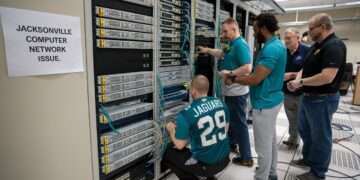Engineering technology services are rapidly evolving, and staying abreast of these changes is crucial for businesses and professionals alike. In the realm of digital engineering services, several emerging trends are reshaping the industry. These trends are not just technological advancements but also represent shifts in how engineering tasks are approached and executed. This article explores the latest trends in engineering technology services and their impact on the industry.
1. Increased Focus on Sustainability and Eco-Friendly Practices
Sustainability is becoming a central theme in engineering technology services. As environmental concerns grow, more businesses are seeking eco-friendly solutions. This trend involves using renewable energy sources, sustainable materials, and environmentally friendly processes in engineering projects. The focus is on reducing the environmental impact and creating sustainable solutions that can endure over time. This shift towards green engineering drives innovation in areas like energy efficiency, waste reduction, and resource conservation.
2. Integration of Artificial Intelligence and Machine Learning
Artificial intelligence (AI) and machine learning (ML) are revolutionizing engineering technology services. These technologies are being integrated into various engineering aspects, from design and simulation to maintenance and diagnostics. AI and ML can analyze vast amounts of data, identify patterns, and make predictions, thereby enhancing decision-making and problem-solving in engineering projects. This integration leads to increased efficiency, reduced errors, and innovative solutions.
Sutherland states, “They provide seamless efficiency at every step of the digital transformation journey.”
3. Adoption of Virtual and Augmented Reality
Virtual reality (VR) and augmented reality (AR) are becoming increasingly popular in engineering technology services. These technologies provide immersive experiences useful for visualization, design, and training. For instance, VR can create detailed 3D models of engineering projects, allowing engineers to explore and interact with designs in a virtual environment. AR can overlay digital information onto the physical world, assisting engineers in maintenance and repair tasks. Using VR and AR in engineering enhances understanding, collaboration, and accuracy, making complex tasks more manageable and efficient.
4. Emphasis on Cybersecurity in Engineering Projects
As engineering technology services become more digitalized, cybersecurity is emerging as a critical concern. Protecting engineering data and systems from cyber threats is essential to ensure the safety and integrity of projects. This trend involves implementing robust security measures such as encryption, access control, and regular security audits. Cybersecurity is particularly vital in sectors like critical infrastructure, where breaches can have significant consequences. Engineering firms are investing in cybersecurity to safeguard their projects, data, and reputation, recognizing that a proactive approach to security is necessary in today’s digital landscape.
5. Growth of Remote Engineering and Collaboration Tools
The rise of remote work is influencing engineering technology services. Remote engineering and collaboration tools are becoming more prevalent, allowing teams to work together effectively from different locations. These tools include cloud-based platforms, project management software, and communication applications. Remote engineering enables flexibility and access to a wider talent pool as geographical barriers are reduced. It also allows for more diverse and collaborative approaches to engineering projects. As remote work becomes more common, the use of digital tools for collaboration and project management in engineering is expected to grow.
The field of engineering technology services is undergoing significant changes, driven by emerging trends such as sustainability, AI and ML integration, the use of VR and AR, a focus on cybersecurity, and the growth of remote engineering. These trends are transforming how engineering tasks are approached and executed, offering new opportunities and challenges. Businesses and professionals in the engineering field must adapt to these changes to remain competitive and effective in an increasingly digital and dynamic industry.
Also Read : Software Maintenance Services is Crucial for Optimal Business Growth


























